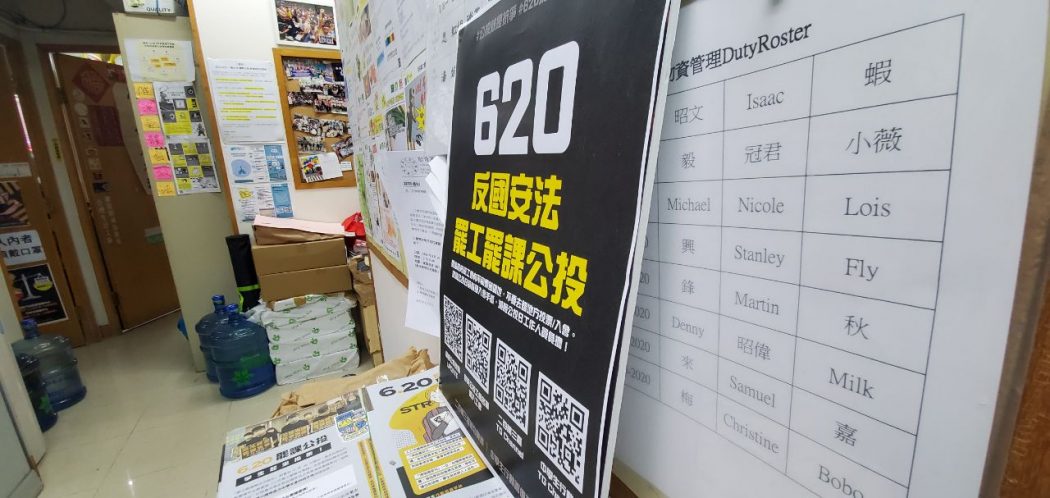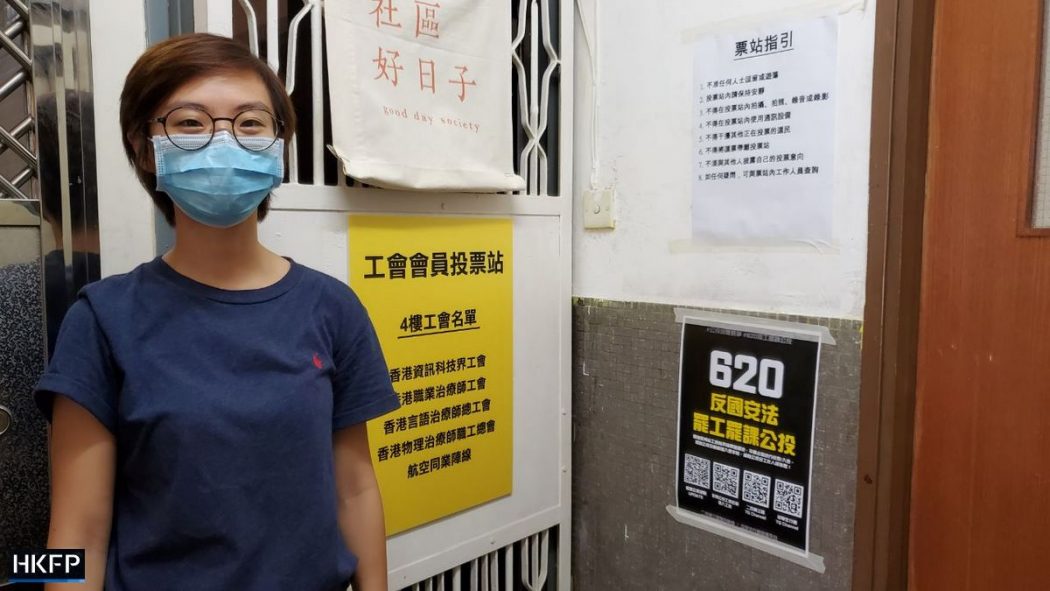Hong Kong students and labour unions on Saturday morning kicked off an unofficial referendum among members on whether to stage a walkout over impending Beijing-imposed national security laws.
Twenty polling places opened at 10 am with a small stream of voters seen at the main station in Tsz Wan Shan. More than a dozen other locations to cast ballots are scattered across the city.

The poll comes as Beijing gears up to unveil its draft of sweeping national security laws criminalising subversion, secession, foreign interference and terrorism in Hong Kong – to be imposed without legislative oversight. Critics have said the move will further snuff out dissent following months of pro-democracy protests in the semi-autonomous territory.
“Referendum” organisers – a coalition of 30 labour unions across more than 20 industries and a student platform – said they aim to secure a two-thirds majority to carry motions, including the industrial strike and class boycott, among other matters.
Unions are hoping to generate a minimum turnout of 60,000 voters, whilst the student group is seeking at least 10,000.
Demosisto activist Isaac Cheng, who represents organiser the Secondary School Student Preparatory Platform for Action, told reporters he hoped the vote would act as a bulwark against authorities’ tightening grip on freedom of expression: “Our action will prove that we are not puppets… We are Hong Kong citizens.”
“The current referendum may be the last chance we can mobilise people to express themselves.”

Chief Executive Carrie Lam weighed in earlier this month, saying the strike would have no legal basis whilst pitting activists against the city’s some seven million residents: “I do not believe that Hong Kong people welcome that sort of strike action when the greatest worry of many people is losing their jobs and facing difficulties in their daily living.”
Secretary for the Civil Service Patrick Nip on Friday cautioned the beleaguered government workforce – including members of the Union for New Civil Servants – against participating, saying it would violate job regulations.
The union’s chair Michael Ngan told reporters the government had unfairly influenced members by airing “misleading” criticisms of the referendum: “We urge the government to respect civil servants’ right to express personal opinions.”
“We also urge members to voice out [concerns] on issues which are relevant to Hong Kong society’s overall interest and future development,” he added.

Three floors have been designated as polling stations at Wan Chai’s Foo Tak building. Declining to give her full name, floor coordinator Ms Ng from the General Union of Hong Kong Speech Therapists told HKFP she hoped the “referendum” would demonstrate public opposition to the national security law to authorities.
“We still have the opportunity, the right and the freedom to organise this kind of polling. If we don’t do this now, we are afraid that we can’t do this in the future,” she said. “We are really putting pressure on them. For the backfire and white terror, that’s… [those are] the risks that we are taking.”

Another voter, who gave his name as Eric, told HKFP the action was an important channel for voicing political opinions: “I just come out to vote. It is our basic rights… We should just [make] our stance clear.”

Vote counting is set to begin at 9:30 pm with the results announced at 11 pm.
